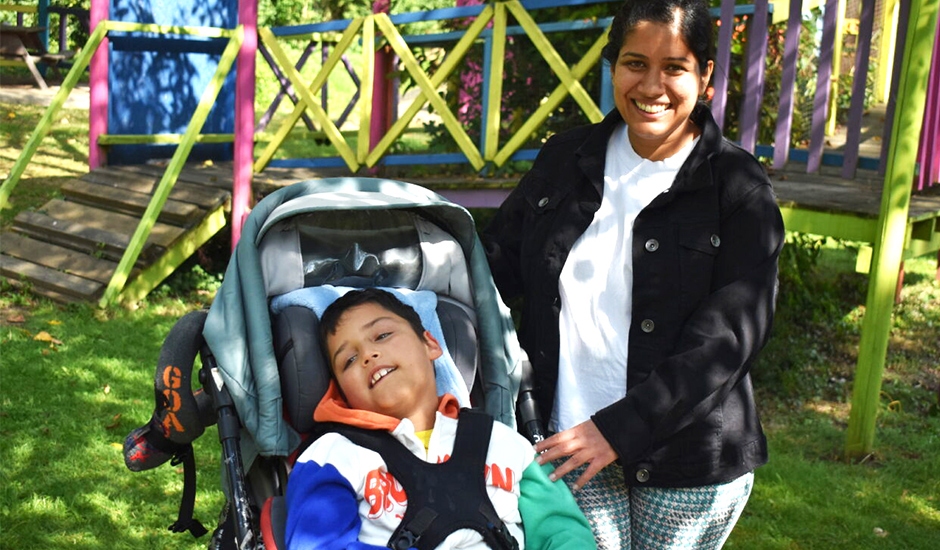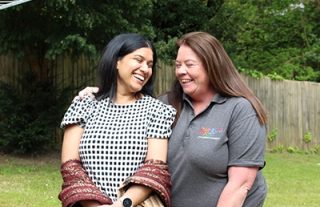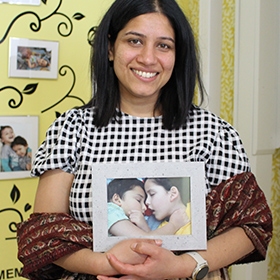Eleven-year-old Riley is a cheeky, happy, and sweet boy who loves long walks, messy play, socialising and watching TV.
Not long after Riley was born, he became unwell with a chest infection and was soon diagnosed with an identified but unnamed genetic neurological condition that means he is non-verbal, non-mobile, nil by mouth, epileptic, and developmentally delayed. A year later, his brother Stanley was born with the same condition.
His mother, Shailza, explained that the condition runs in the family, however it only affects males. Both her uncle, and her aunt’s son died of the same cause.
When she was pregnant with Stanley, doctors were not able test him for the condition, and even once he was born, Shailza put off getting Stanley tested because she wanted to ‘live in hope for a little longer.’
Stanley later got tested and tests confirmed that he too was affected by the condition.
Shailza describes the first two or three years caring for both Stanley and Riley as ‘very dark’.
‘I was just floating in it. I don’t even know how I did it or what I did. It’s not a nice feeling. I was heartbroken as a mother.’
As the condition only affects boys, Shailza often questioned why both of her children had to be boys.
‘Acceptance was hard because I kept asking why both? Why is one of them not a girl?’
It wasn’t until Riley was three years old that Shailza started looking for help.
‘After three years, I accepted it and I started looking for help, whatever help I could get. I started meeting other parents, learning more stuff, and just start making the most of it.’
Relating to other people who do not have a seriously ill child is hard for Shailza and explains that sometimes it’s hard to keep going.



